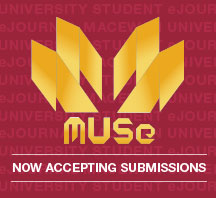Unhealthy Communication: Health Care Communication Between Majority and Minority Cultural Groups
DOI:
https://doi.org/10.31542/muse.v4i1.1893Abstract
Effective communication is important in almost every aspect of life. Within the medical setting, effective communication is paramount because the consequences of miscommunication can be deadly. In health care contexts interpersonal communication is not only affected by the nature of the interaction but also the power differentials between the people participating. The purpose of this paper is to examine how health care communication is affected by power dynamics. Specifically, it will look at the communication between majority-culture doctors and minority patients in order to advance the following argument: the asymmetrical power relationship between doctors and patients is exacerbated when doctors are from majority cultural backgrounds and patients are from minority cultural backgrounds, this is problematic because communication within a medical context is important for patient satisfaction, recall of information, and outcomes. Following the introduction, the literature review explores some of the trends in medical communication literature; these trends include discussions in the literature about the variables and behaviours that affect doctor-patient communication and the critical approach of research done on intercultural medical communication. The section after the literature review establishes that power gaps exist between doctors and patients as well as majority and minority cultural groups. The following paragraphs discuss the negative effects these power differentials have on the intercultural communication between patients and doctors when it comes to patient satisfaction, information recall, and outcomes, before coming to the conclusion that without clear expressions of their communicative differences the communication between these two groups will be compromised.
References
Downloads
Published
Issue
Section
License
By publishing works in MUSe, authors and creators retain copyright under a Creative Commons Attribution NonCommercial (CC BY-NC) license, which allows others to share these works for non-commercial purposes as long as credit is given. The MUSe Editorial Board reserves the right to make copy-editing changes to works prior to publication to ensure they conform to the publication's style and quality standards. The Editorial Board also reserves the right to archive published submissions in MacEwan University's institutional repository, RO@M.



